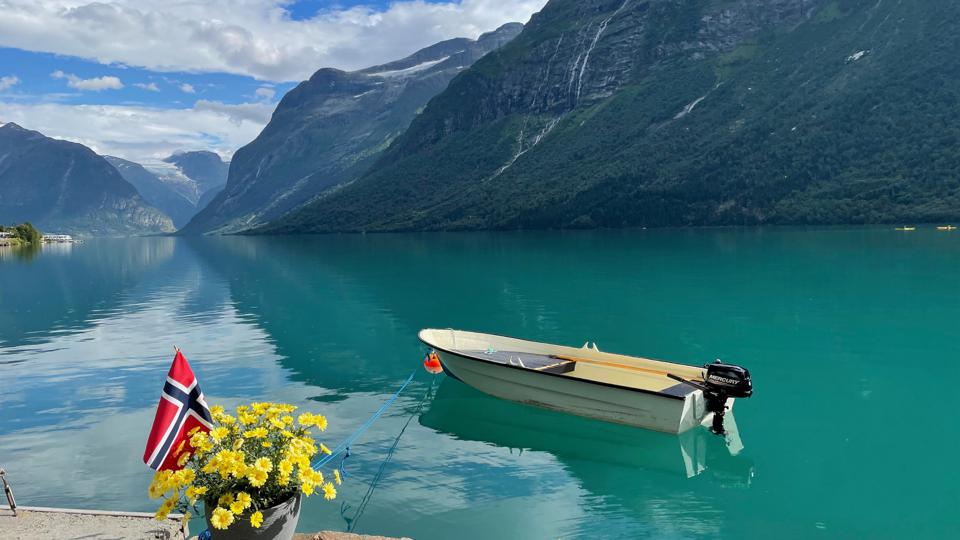While immigration so often dominates the political discourse and debates in the media, it’s believed at least eight million Americans have left the country in pursuit of a better life. The updated study Americans Abroad points out several reasons why, ranging from employment opportunities to a better family life.
While large numbers of U.S. citizens choose Canada or look for a cheaper cost of living in Latin America, approximately one-in-four choose Europe. Far fewer choose one of the Nordic countries, even though the region is known for its consistently high rankings in the World Happiness Report.
Why move to Norway?
Whether it’s the high standard of living, abundant natural beauty and focus on an outdoors lifestyle, low crime rate, universal healthcare or its reputation as a great place to raise a family, Norway is a tempting prospect.
But the Scandinavian country sure isn’t for everyone. The high cost of living means relocation is best suited for those walking into a management level position. High consumption taxes will come as a shock but the feeling of security in employment, health and education is what keeps people content.
Although Norway’s immigration rules mean moving to the country isn’t always easy, it may not be as challenging as you think. Of the 5.48 million people presently living in Norway, approximately 15% were born in another country.
That includes the more than 10,000 Americans who call Norway home. Of those, approximately one-quarter live in the capital city, Oslo. Here’s how you can join them.
The immigration process in Norway
The Norwegian Directorate of Immigration (UDI) is the body responsible for the immigration process, but it’s the Norwegian police that actually processes a lot of the paperwork.
There are many different categories of residence permits. The application process depends upon which one you’re applying for and your country of citizenship, among other factors.
Citizens of EU/EEA countries have an automatic right to live and work in Norway because of the EEA Agreement. Registration with the police is all that’s required, as long as there is a valid reason to stay such as employment or study.
Stricter rules apply for everyone else, including citizens of the U.S. and Canada. Since Brexit, these rules also apply to British citizens.
Skilled workers
For those seeking relocation, finding a job as a ‘skilled worker’ is the most likely way to be granted a residence permit. To justify the skilled worker permit, the job must require a university degree or equivalent vocational training, with a minimum annual salary of NOK 449,900 ($43,500) if it requires a master degree or NOK 417,900 ($40,500) if not.
People who would qualify for a ‘skilled worker’ work permit can apply for a six-month job-seeker visa, although UDI states these are only given in “exceptional circumstances.”
Residence permits are also available for specific trades including seafarers, offshore workers, sports athletes and coaches, ethnic cooks, au pairs and religious teachers. Starting a business as a self-employed person is possible, but proof of expected income is required and, crucially, it must be necessary for you to be in Norway.
Last year, UDI clarified the rules on remote workers. While many countries especially in Asia and Latin America welcome digital nomads, that’s not the case in Norway. UDI considers working in Norway for a remote employer (or your own online business) to be no different, meaning in most cases a skilled worker or self-employment residence permit is required.
Family immigration
There is also a family immigration permit, but there’s a lot of misinformation about what that means. Unfortunately for those with Norwegian ancestry, Norway offers no residence permit based on family connection unless a close relative is living in Norway.
The family immigration permit is designed to allow, for example, the partner or children of someone working in Norway to join them. Partners of Norwegian citizens can also use this process, but conditions apply.
Moving to Norway to study
While most bachelor level education is conducted in Norwegian, Norway’s public universities offer a lot of master programs in English. Studying in Norway is a great way to experience Scandinavian lifestyle without committing to a permanent move.
Residence permits are available to students who have successfully applied and been granted a full-time place at a university college or university in Norway. Applicants in this category are required to prove existing funds or annual income of at least NOK 128,887 ($12,500) per year for full-time study, less for single semesters.
Successful applicants are permitted to work up to 20 hours per week part-time in order to help meet the income requirement and support themselves.
Staying long-term in Norway
After three years holding valid residence permits, it’s possible for non-EU/EEA citizens to apply for a permanent residence permit meaning you can live and work in Norway indefinitely with no need to renew permits.
Other conditions apply, including a requirement to learn the Norwegian language. Depending on your circumstances, this means passing an oral exam or attending a mandatory amount of formal tuition.

